Without principles, Red Cross would simply not exist
21 October 2025
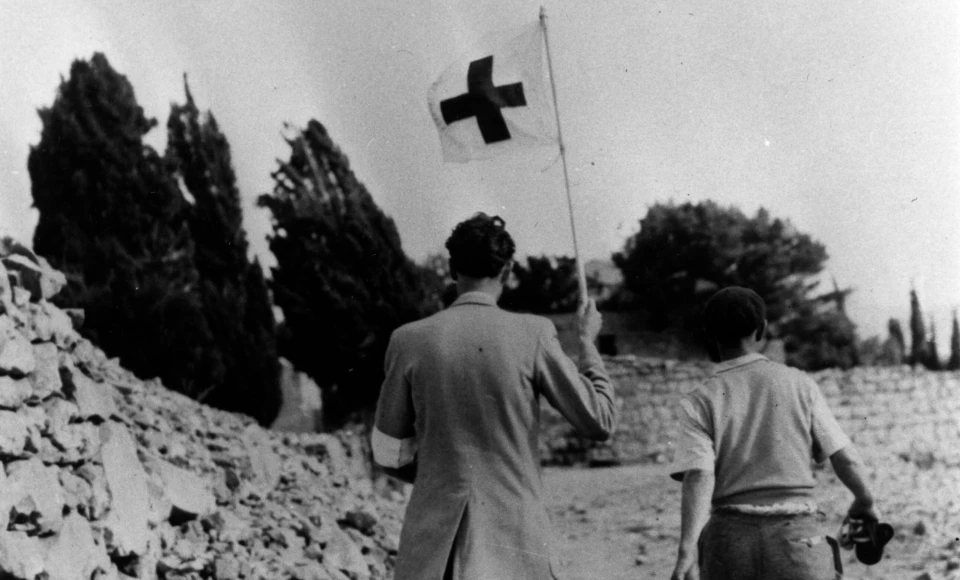
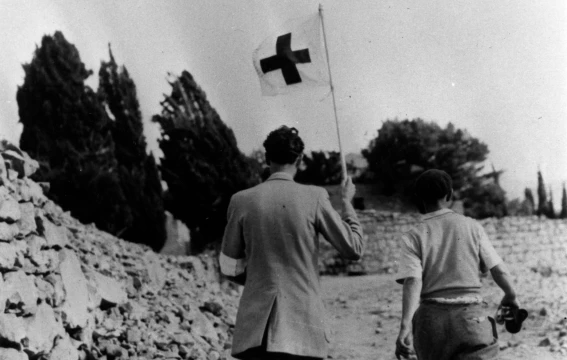
Our Movement was born in 1859 on a battlefield in a Solferino in response to the distress, chaos, and suffering of people fighting and dying. Driven by a desire to help vulnerable people, for the international Red Cross and Red Crescent Movement our Fundamental Principles are enduring values that inform everything that we do.
The seven Fundamental Principles were unanimously adopted at the 1965 International Conference of the Red Cross. The Principles express decades of experience and learned wisdom from helping vulnerable people in some of their darkest days.
The beginning of our Principles
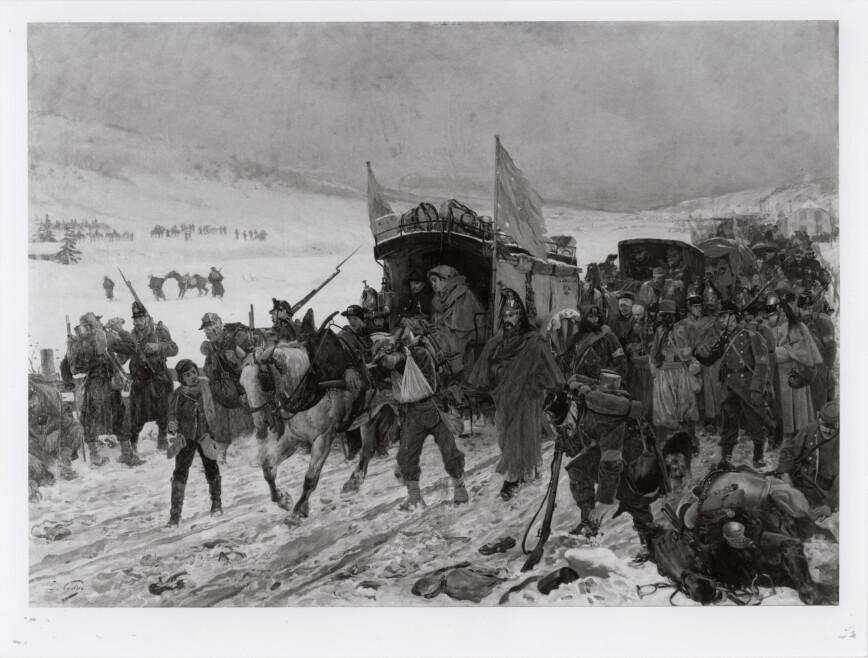
A horse-drawn ambulance in the Franco-Prussian War, 1871.
The seedlings of our Fundamental Principles appear in our Movement’s founding texts, including Henri Dunant’s ‘Memory of Solferino’ and the 1864 Geneva Convention.
After developing our earliest principles for over a decade, Gustave Moynier listed some of these in an 1875 article:
- Centralisation – there can be only one Red Cross Society per country and its activities must embrace the whole country.
- Foresight – Societies need to always be ready, preparing during peacetime for humanitarian activities during conflict.
- Mutuality – Societies must be willing to help all wounded and sick people, regardless of their nationality.
- Solidarity – Societies must help each other.
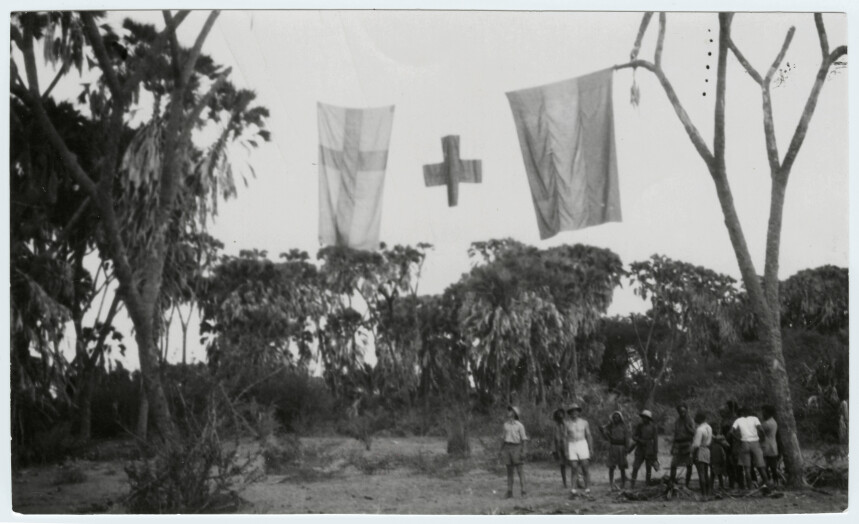
ICRC in Abyssinia (now Ethiopia) during the Italian-Abyssinian War, 1935.
Before 1946, various principles and definitions were included in the statutes of the International Committee of the Red Cross (ICRC) and the League of Red Cross Societies – now known as the International Federation of Red Cross and Red Crescent Societies (IFRC).
In 1946, ICRC adopted 13 principles and six applications of principles at their conference in Oxford. These principles went on to form not only the seven that were unanimously adopted in 1965, but the work of our wider Movement to help vulnerable people across the world.
- Red Cross and Red Crescent Societies are voluntary, public, and self-governing.
- Societies must be recognised by the government and should carry out its work in agreement with the Armed Forces, public health services, and others so they can work alongside official services.
- Using the Red Cross and Red Crescent names and emblems is governed by the Geneva Conventions and should be protected.
- Societies’ activities should be based in spreading humanitarian ideas and practical work which alleviates suffering.
- Knowing the horrors of armed conflict, Societies should promote peace through their work.
- During armed conflict, Societies should make every effort to help affected people.
- Societies should make every effort to help people affected by disasters and other emergencies.
- Societies should do everything possible to prevent suffering from illnesses and promote public health.
- To carry out its aims, Societies should be truly democratic and open to all.
- Funding for Societies should come mostly from membership fees and voluntary donations. If government funding is accepted, the Society maintains its independence.
- Children are the adults of the future, so Societies need to include children and young people in activities and programmes.
- When working with others, Societies maintain their independence.
- All Societies should be a member of the League of Red Cross Societies.
How societies were to apply the Oxford principles
- Take steps to prevent the Movement name and emblem being used by others.
- Train people to help with illness and distress — especially in conflict — without prejudice.
- Be ready to carry out services during armed conflict which are enshrined in the Geneva Conventions:
- support medical services of Armed Forces
- provide relief to prisoners of war and civilians
- enable affected people to contact loved ones
- trace missing people.
- Maintain independence during conflict and in times of peace.
- Promote service to others by having programmes for children and young people.
- Train people to provide medical assistance during armed conflict and times of peace.
We see many of the 13 Oxford Principles in the way that we and other National Societies operate all over the world. We’re democratic, we train people in first aid, we work alongside government, we’re a charity, we help people affected by conflict and disasters, we include children in our programmes, and we’re independent.
Other aspects of the 13 principles are bound in law through the 1949 Geneva Conventions, which protect people who aren’t fighting in conflict as well as those who do. The Conventions safeguard our name and emblem, ensuring that they protect people carrying our humanitarian aid. Our Restoring Family Links service also receives more than 100 enquiries each year from people in New Zealand looking for loved ones overseas.
The seven Fundamental Principles
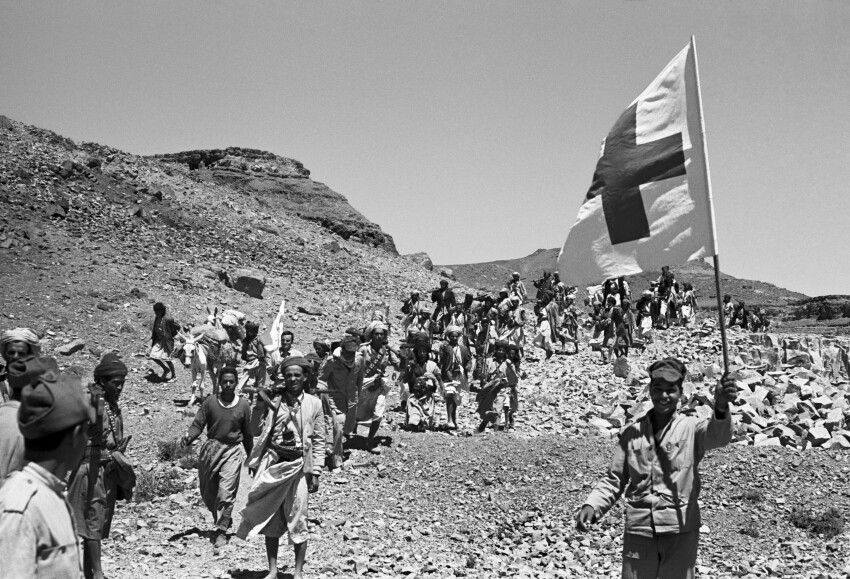
ICRC repatriating Egyptian Prisoners of War, 1965.
The Fundamental Principles we know today were adopted unanimously in 1965, marking the end of a 100-year journey to fully capture our Movement’s guiding values. They provide a universal doctrine and foundation for our Movement.
Humanity
We’re about people. We protect life and health and ensure respect for people. We promote mutual understanding, friendship, cooperation, and lasting peace.
Impartiality
We’re here for everyone. We provide help wherever we're needed, without discrimination.
Neutrality
We don’t take sides. We help vulnerable people and we're not part of the fight.
Independence
We stay true to ourselves. We keep our autonomy and mana motuhake when working alongside government.
Voluntary service
We’re powered by kindness. Our people aren't here for monetary gain – we do what we do to help others.
Unity
We stand together. We carry out humanitarian work across our rohe and are open to all.
Universality
We serve need everywhere. As a global Movement, all Societies have equal status and responsibility to help others.
A united legacy
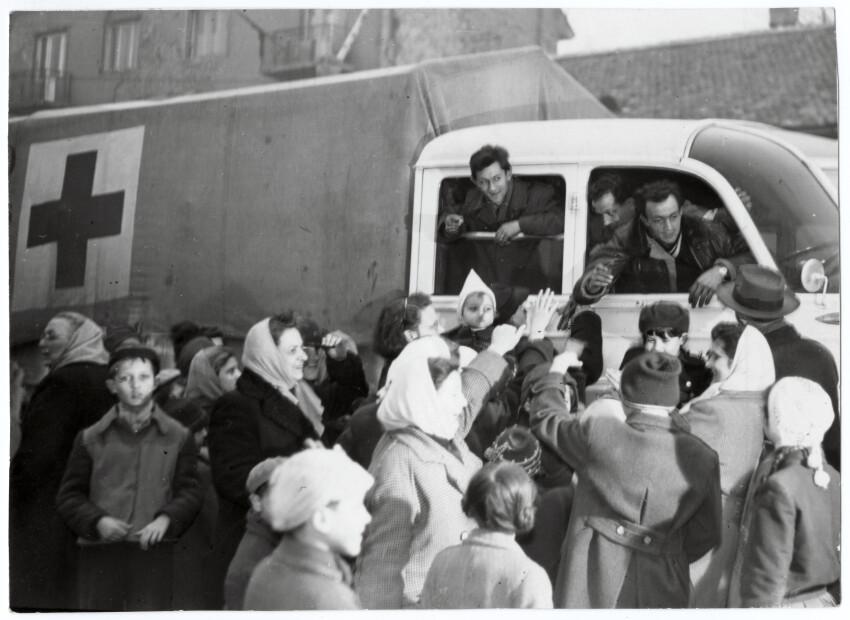
ICRC aid trucks arriving in Hungary, 1967.
Through adopting the Principles, ICRC aimed to prevent fracturing in the polarised world of the Cold War era. Proving to be timeless, they continue to be relevant amongst the waves of change our world has experienced over 60 years – outliving the people who wrote them.
Whatungarongaro te tangata toitū te whenua.
Land remains as man disappears from sight.
The seven Fundamental Principles belong to everyone. They’re a moemoeā for the world which all Red Cross and Red Crescent Societies agree to – a world with respect for life and happiness, which rejects violence and hatred. They express our deep care for human beings and optimism for the future.
Header image: An ICRC delegate crossing the front line during a two-day truce to collect the bodies of people killed in Katamon, Jerusalem. Taken between 1948 and 1950.
Find out more
- Find out more about our Fundamental Principles and how they guide our work.
Our Fundamental Principles - Find out more about the International Red Cross and Red Crescent Movement.
Our Movement - Find out more about international humanitarian law and how these rules apply to armed conflicts.
International humanitarian law - Learn more about what we do in New Zealand.
Our work in New Zealand - In times of disasters, conflict, and other emergencies, we respond to the needs of vulnerable people around the world.
What we do overseas
